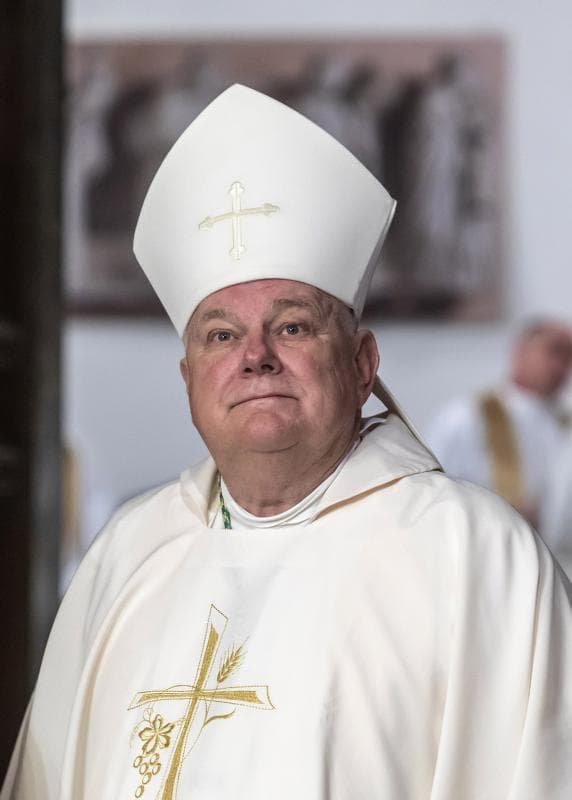WASHINGTON, D.C. — Archbishop Thomas G. Wenski of Miami has been appointed the acting chairman of the U.S. bishops’ Committee for Religious Liberty.
The appointment by Archbishop Jose H. Gomez of Los Angeles, president of the U.S. Conference of Catholic Bishops, came June 22.
He assumes leadership of the committee from Bishop George V. Murry of Youngstown, Ohio, who died June 5.
“Archbishop Wenski is an energetic leader who truly brings a servant’s heart for ministry. I deeply appreciate his willingness to step into this role and lead the important work of the Committee for Religious Liberty,” Gomez said.
The 69-year-old Florida archbishop earlier served as chairman of three USCCB committees, including Domestic Justice and Human Development from 2013 to 2016, International Justice and Peace from 2055 to 2008 and Migration from 2002 to 2005. He also was chairman of the board of the Catholic Legal Immigration Network from 1998 to 2001.
He also was a member of the Committee on Pro-Life Activities and the Subcommittee on the Church in Latin America. He has played a key role as the USCCB representative to PROCHE, the Partnership for the Reconstruction of the Church in Haiti, which has overseen the rebuilding of churches, schools, residences and other structures destroyed in the Caribbean nation’s catastrophic 2010 earthquake.
In his new role as acting chairman. Wenski issued a statement June 22 about the USCCB’s Religious Freedom Week June 22-29, which has its theme “For the Good of All.” The bishops are urging Catholics to “pray, reflect and take action” on religious liberty in the United States and abroad during the week.
“Religious freedom is under stress throughout the world. Even in our Western liberal democracies, discrimination against religion in general and Catholic Christianity, in particular, is growing — albeit in perhaps more sophisticated and less violent ways,” the archbishop said.
Political analysts and human rights advocates include religion on their agenda of issues, Wenski said, but most of them “emphasize ‘tolerance’ as if religion were only a source of conflict” or they discuss religion “in terms of ‘individual choices,’ as if religion were merely the concern of an individual’s conviction and were devoid of any social consequences.”
“Yet,” he continued, “just as freedom of speech depends not only on one’s right to say what’s on one’s mind but also on the existence of institutions like newspapers, universities, libraries, political parties and other associations that make up what we call ‘civil society,’ so too freedom of religion ‘for the good of all’ must also encompass protecting those institutions that nourish the individual’s free exercise of religion.”
The foundation of the right to religious freedom is based “in the very dignity of the human person,” Wenski said. “Religious freedom is the human right that guarantees all other rights — peace and creative living together will only be possible if freedom of religion is fully respected.”












